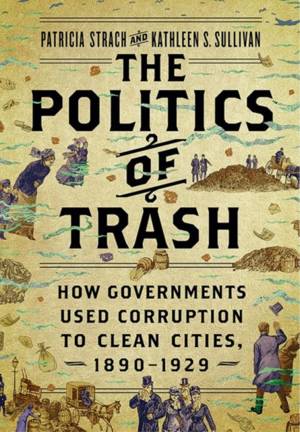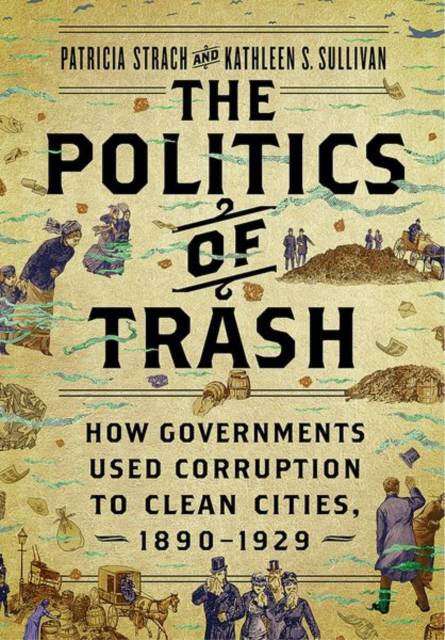
- Retrait gratuit dans votre magasin Club
- 7.000.000 titres dans notre catalogue
- Payer en toute sécurité
- Toujours un magasin près de chez vous
- Retrait gratuit dans votre magasin Club
- 7.000.000 titres dans notre catalogue
- Payer en toute sécurité
- Toujours un magasin près de chez vous
The Politics of Trash
How Governments Used Corruption to Clean Cities, 1890-1929
Patricia Strach, Kathleen S SullivanDescription
The Politics of Trash explains how municipal trash collection solved odorous urban problems using nongovernmental and often unseemly means. Focusing on the persistent problems of filth and the frustration of generations of reformers unable to clean their cities, Patricia Strach and Kathleen S. Sullivan tell a story of dirty politics and administrative innovation that made rapidly expanding American cities livable.
The solutions that professionals recommended to rid cities of overflowing waste cans, litter-filled privies, and animal carcasses were largely ignored by city governments. When the efforts of sanitarians, engineers, and reformers failed, public officials turned to the habits and tools of corruption as well as to gender and racial hierarchies.
Corruption often provided the political will for public officials to establish garbage collection programs. Effective waste collection involves translating municipal imperatives into new habits and arrangements in homes and other private spaces. To change domestic habits, officials relied on gender hierarchy to make the women of the white, middle-class households in charge of sanitation. When public and private trash cans overflowed, racial and ethnic prejudices were harnessed to single out scavengers, garbage collectors, and neighborhoods by race. These early informal efforts were slowly incorporated into formal administrative processes that created the public-private sanitation systems that prevail in most American cities today.
The Politics of Trash locates these hidden resources of governments to challenge presumptions about the formal mechanisms of governing and recovers the presence of residents at the margins, whose experiences can be as overlooked as garbage collection itself. This consideration of municipal garbage collection reveals how political development often relies on undemocratic means with long-term implications for further inequality. Focusing on the resources that cleaned American cities also shows the tenuous connection between political development and modernization.
Spécifications
Parties prenantes
- Auteur(s) :
- Editeur:
Contenu
- Nombre de pages :
- 246
- Langue:
- Anglais
Caractéristiques
- EAN:
- 9781501766985
- Date de parution :
- 15-01-23
- Format:
- Livre relié
- Format numérique:
- Genaaid
- Dimensions :
- 152 mm x 229 mm
- Poids :
- 517 g







